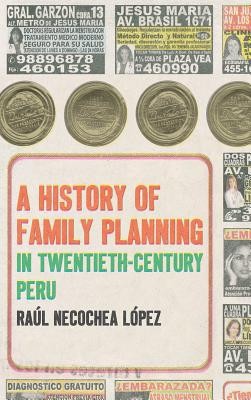
- We will send in 10–14 business days.
- Author: Raúl Necochea López
- Publisher: University of North Carolina Press
- ISBN-10: 1469618087
- ISBN-13: 9781469618081
- Format: 15.5 x 23.1 x 1.8 cm, softcover
- Language: English
- SAVE -10% with code: EXTRA
A History of Family Planning in Twentieth-Century Peru (e-book) (used book) | bookbook.eu
Reviews
Description
Adding to the burgeoning study of medicine and science in Latin America, this important book offers a comprehensive historical perspective on the highly contentious issues of sexual and reproductive health in an important Andean nation. Raul Necochea Lopez approaches family planning as a historical phenomenon layered with medical, social, economic, and moral implications. At stake in this complex mix were new notions of individual autonomy, the future of gender relations, and national prosperity.
The implementation of Peru's first family planning programs led to a rapid professionalization of fertility control. Complicating the evolution of associated medical services were the conflicting agendas of ordinary citizens, power brokers from governmental and military sectors, clergy, and international health groups. While family planning promised a greater degree of control over individuals' intimate lives, as well as opportunities for economic improvement through the effective management of birth rates, the success of attempts to regulate fertility was far from assured. Today, Necochea Lopez observes, although the quality of family planning resources in Peru has improved, services remain far from equitably available.
EXTRA 10 % discount with code: EXTRA
The promotion ends in 18d.00:47:39
The discount code is valid when purchasing from 10 €. Discounts do not stack.
- Author: Raúl Necochea López
- Publisher: University of North Carolina Press
- ISBN-10: 1469618087
- ISBN-13: 9781469618081
- Format: 15.5 x 23.1 x 1.8 cm, softcover
- Language: English English
Adding to the burgeoning study of medicine and science in Latin America, this important book offers a comprehensive historical perspective on the highly contentious issues of sexual and reproductive health in an important Andean nation. Raul Necochea Lopez approaches family planning as a historical phenomenon layered with medical, social, economic, and moral implications. At stake in this complex mix were new notions of individual autonomy, the future of gender relations, and national prosperity.
The implementation of Peru's first family planning programs led to a rapid professionalization of fertility control. Complicating the evolution of associated medical services were the conflicting agendas of ordinary citizens, power brokers from governmental and military sectors, clergy, and international health groups. While family planning promised a greater degree of control over individuals' intimate lives, as well as opportunities for economic improvement through the effective management of birth rates, the success of attempts to regulate fertility was far from assured. Today, Necochea Lopez observes, although the quality of family planning resources in Peru has improved, services remain far from equitably available.


Reviews